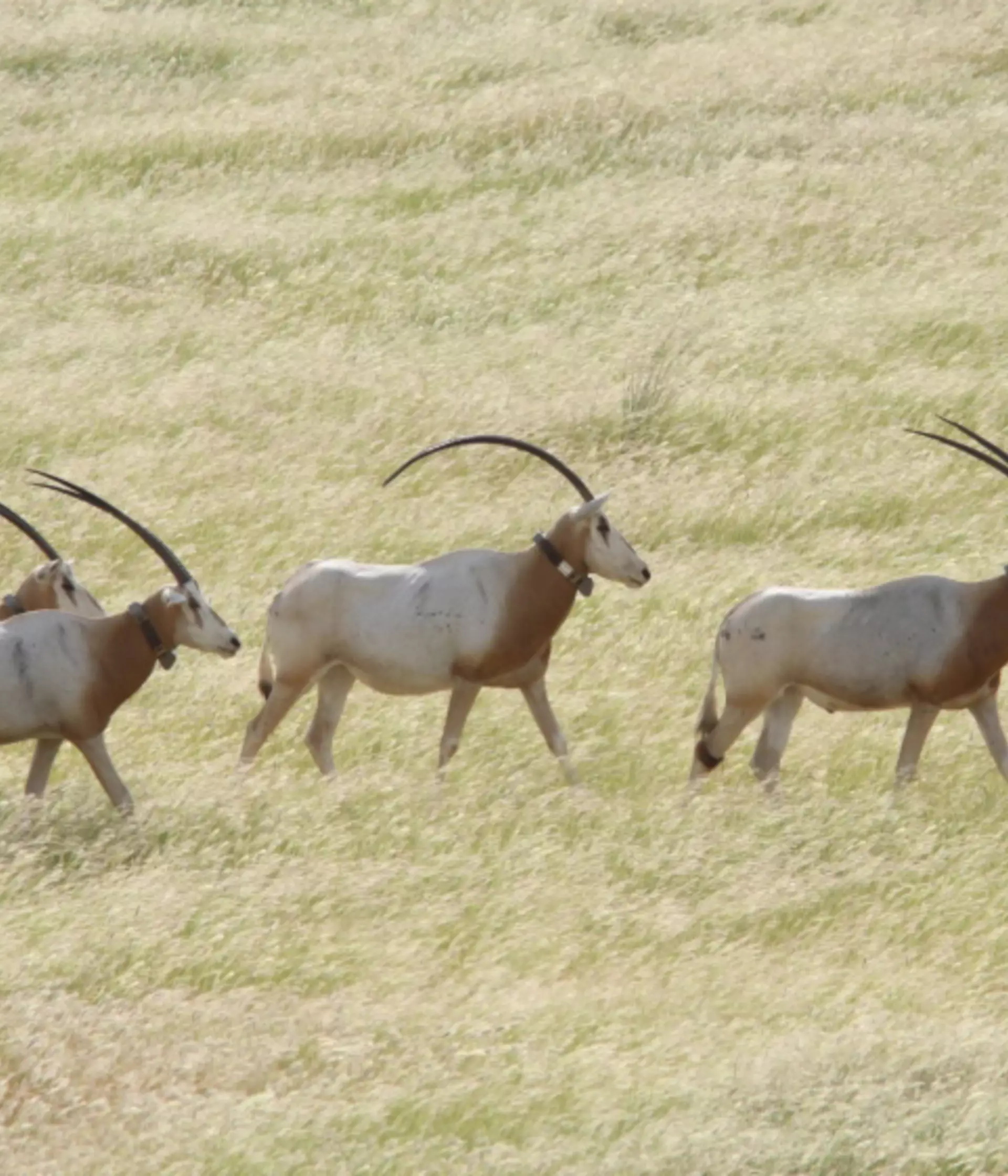Whipsnade Zoo reintroducing species
Whipsnade Zoo conservation has played an important part in the re-establishing of an extinct species.
Two female oryx bred at Whipsnade Zoo were part of a captive-born group transported to Abu Dhabi in 2014 as a critical part of an ambitious, pioneering conservation project.
These large antelope with their distinctive blade-like horns were declared extinct in the wild by IUCN in 2000, but a ground-breaking joint initiative between The Environment Agency of Abu Dhabi (EAD) and the Government of Chad sought to re-establish a free-ranging population of oryx in the species’ historical range.
One of our own conservationists, Tim Wacher, has been involved in scimitar-horned oryx conservation since 1985, and ZSL is one of several global partners providing key support to this ambitious project. Involved from the start, we worked with partners including the Sahara Conservation Fund (SCF) to carry out early feasibility studies to ensure any reintroduction stood the best chance of success, and have continued to provide scientific and conservation support to the reintroduction programme since then.
Whipsnade animals translocated for conservation
The Ouadi Rimé-Ouadi Achim Game Reserve in central Chad emerged as the place with the highest potential for a successful reintroduction after surveys revealed that the reserve, which supports large numbers of nomadic pastoralists and their livestock, still held the world’s largest remaining dorcas gazelle population as well as healthy populations of bustards and most notably, a small population of the critically endangered dama gazelle.
The Whipsnade females were transferred to Abu Dhabi alongside 23 other animals from different locations to help EAD breed a genetically diverse “world herd” for reintroduction to the wild. This first group of descendants reintroduced to the reserve in 2016 thrived in their new habitat, and soon welcomed what was believed to be the first scimitar-horned oryx born in the wild for more than 20 years. Since then there have been more than 40 wild births after the release of subsequent groups increased the size of the original herd.
In December 2023, the scimitar horned oryx was downlisted from Extinct in the Wild to Endangered on the IUCN Red List following global conservation efforts to save its species.
Collaborating for conservation
ZSL conservationist Tim Wacher, said: “This project is the result of decades of collaborative effort between national and international conservation organisations, the Government of Chad, the EAD and local Chadian communities. It’s been a privilege to play a part in returning this iconic species to its original homeland; releasing these animals back into their native arid grassland landscape.”
You can still see scimitar-horned oryx in the zoo, look for them grazing in their paddock – they are easily recognisable by their impressive horns and distinctive sandy-coloured markings on their chest and forehead extending down towards their nostrils.
As part of ZSL, we carry out wildlife conservation work all over the world.
At ZSL we're working across the world to restore wildlife, from leading to cutting-edge science to establishing crucial reintroduction work. We're helping turn the tide on wildlife crime, recover Chinese giant salamanders from extinction and protect Greater one-horned rhinos from poachers.
ZSL conservation projects
Greater one-horned rhino conservation
Together with local communities and our partners, we have established anti-poaching patrols which are key to recovering numbers in Nepal.
Protecting the last 35 Hainan gibbons
The Hainan gibbon is the rarest primate and possibly the rarest mammal species. There's been a severe decline in numbers due to habitat loss and hunting.
Leading pangolin conservation
We're working with communities living alongside pangolins, securing an international trading ban, deploying conservation experts in the field to recover their population.
